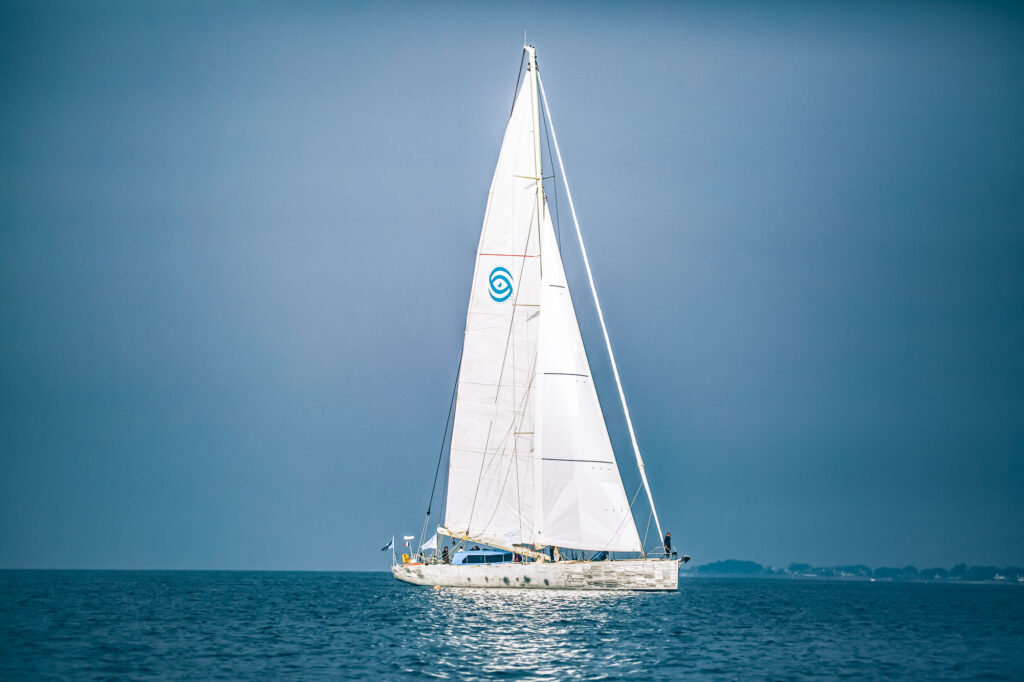Scientific maritime operator Blue Observer has launched a yacht sailing from Brittany, France, to Connecticut in the USA to deploy Argo profiling floats in hard-to-reach locations across the Atlantic Ocean.
Argo floats are autonomous instruments that measure the temperature and salinity in the upper 2,000m of the ocean as part of the Global Ocean Observing System program. These instruments are veritable climate sentinels, which support climate science and feed atmospheric forecasting models.
The French Blue Observer team will deploy a total of 100 Argo floats over a 12-week period in remote parts of the Atlantic which are seldom visited by ships. The R/V Iris is being operated under the coordination of OceanOPS, which is co-sponsored by WMO and the Intergovernmental Oceanographic Commission (IOC) of UNESCO.
The Blue Observer collaboration was created during the Covid-19 pandemic, when the deployment of Argo floats and other oceanographic instruments by research vessels was severely impacted by restrictions.
Mathieu Belbéoch, manager of OceanOPS, said, “About 1,000 Argo profiling floats must be deployed every year to sustain the Global Ocean Observing System. Often, they are deployed opportunistically by research ships, but these are very costly, and their trajectories are tied to specific missions and are not able to fill all the gaps or work in all seasons. Collaborations with citizens allows us to reach remote and not yet well-sampled areas of the ocean, filling critical observational gaps.”
Dominique Berod, head of the Earth Monitoring Division at WMO, said, “Observations are key to our understanding of how the complex Earth system – the atmosphere, oceans, freshwater bodies, land, and the biosphere – shapes our weather, climate and hydrology. Data are the start of all our knowledge, and ocean observations are crucial to support essential services needed by all sectors of society, as they face challenges, such as climate change and increasing frequency and impact of extreme weather.”
Sarah Grimes, head of marine services at WMO, added, “In the face of a changing climate, and on the wave of COP-26 in Glasgow, now more than ever, ocean observations are needed for improving the understanding and predictions of weather, climate and ocean conditions. The WMO thanks all those involved in this expedition – wonderful example of international collaboration in science for sustainable development.”
The ship is currently loaded with 17 European Argo floats, provided by the Ifremer Institute in France, the Royal Meteorological Institute (KNMI) in the Netherlands, and the Federal Maritime and Hydrographic Agency (BSH) in Germany.
After approximately two weeks of transatlantic navigation, the R/V Iris will reach Woods Hole, Connecticut, in the USA. There, it will be reloaded with an additional 83 US and Canadian floats, for deployment in under-sampled areas of the south Atlantic Ocean, toward the island of St Helena.



